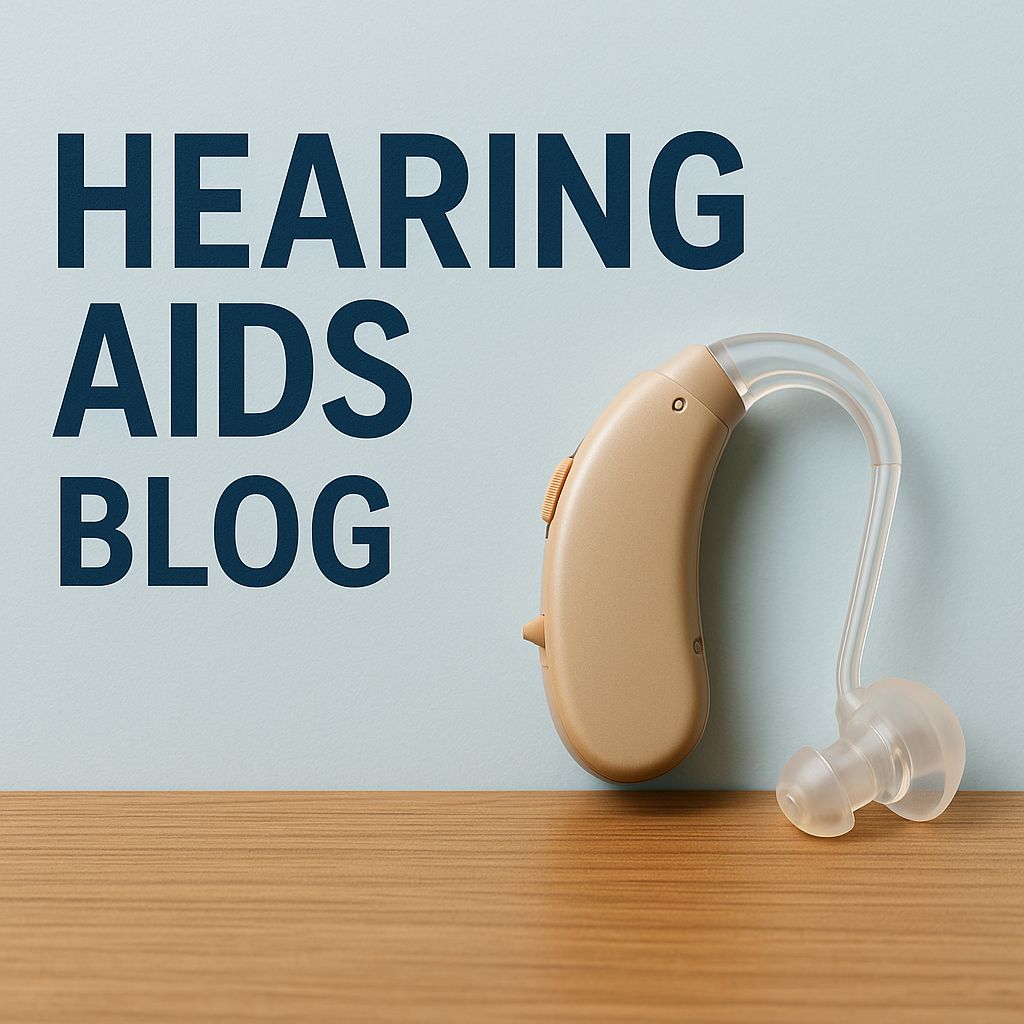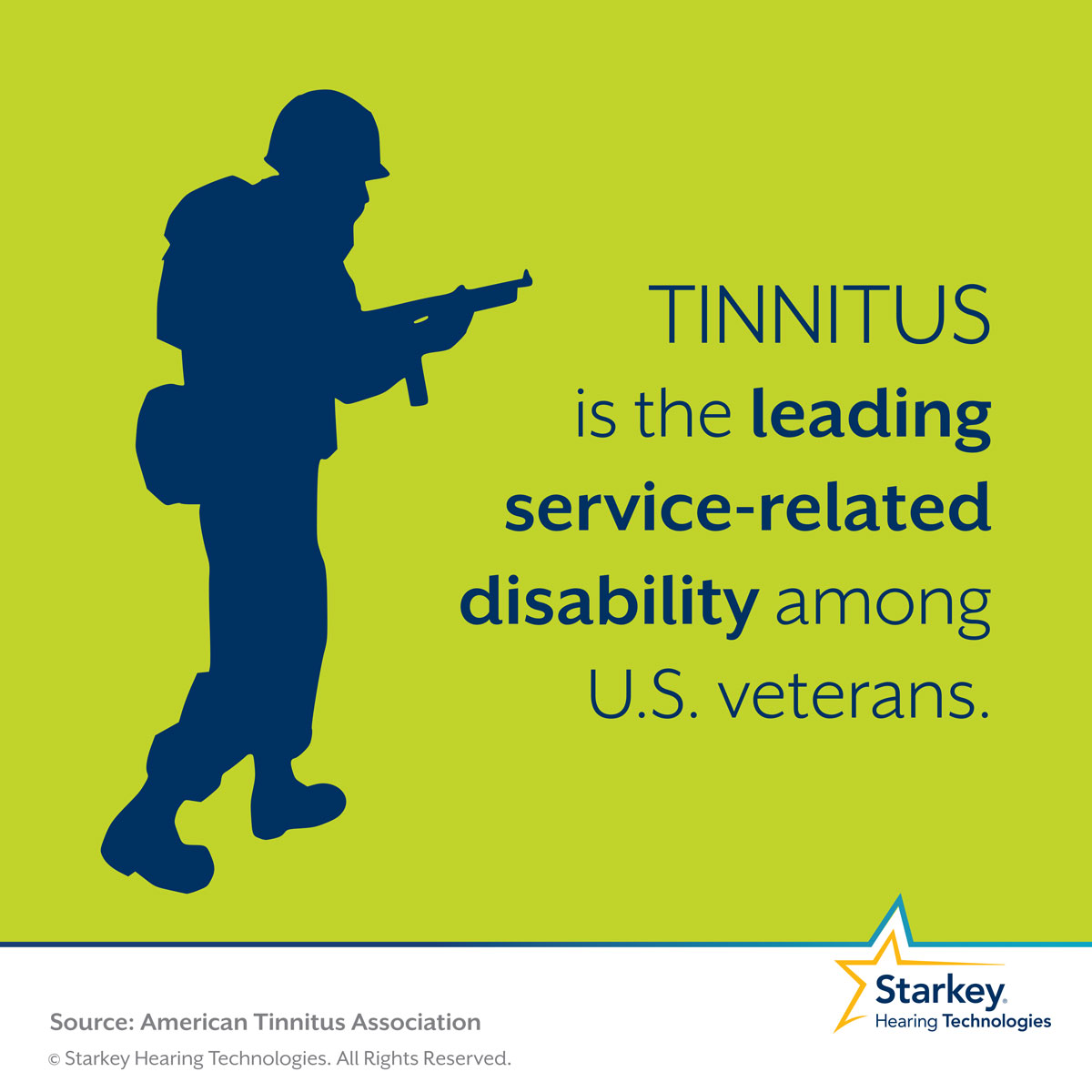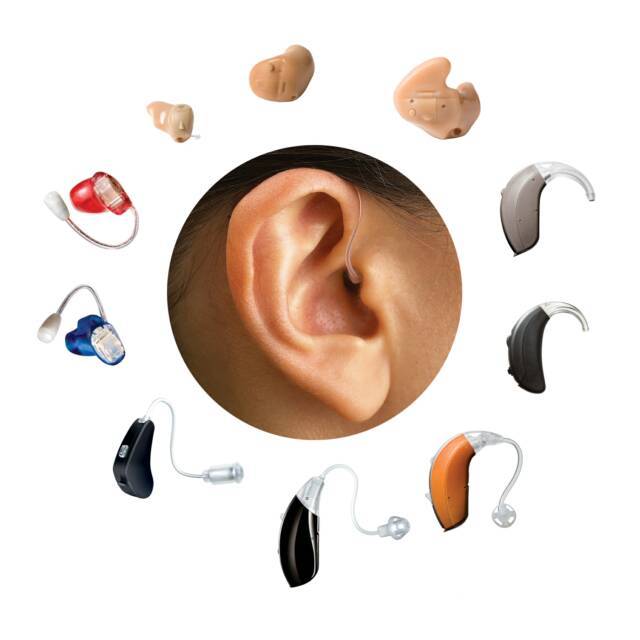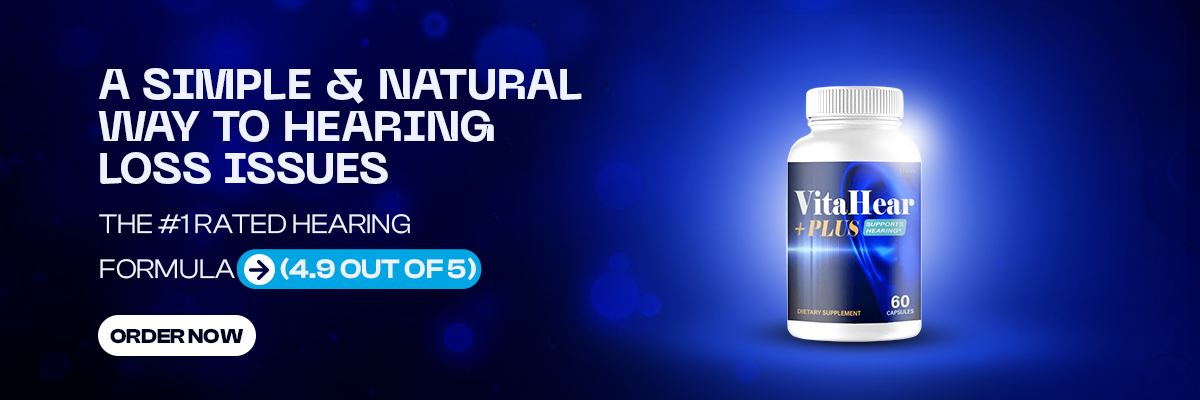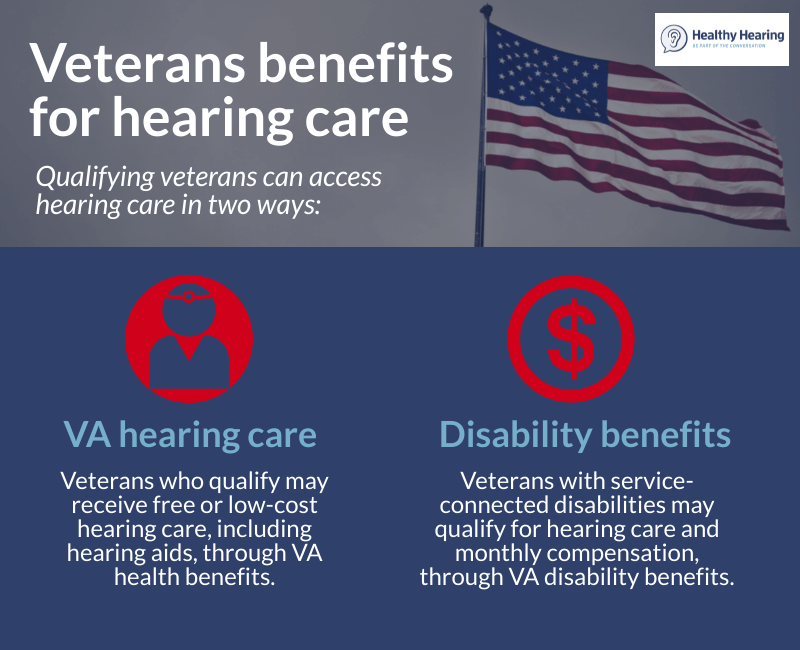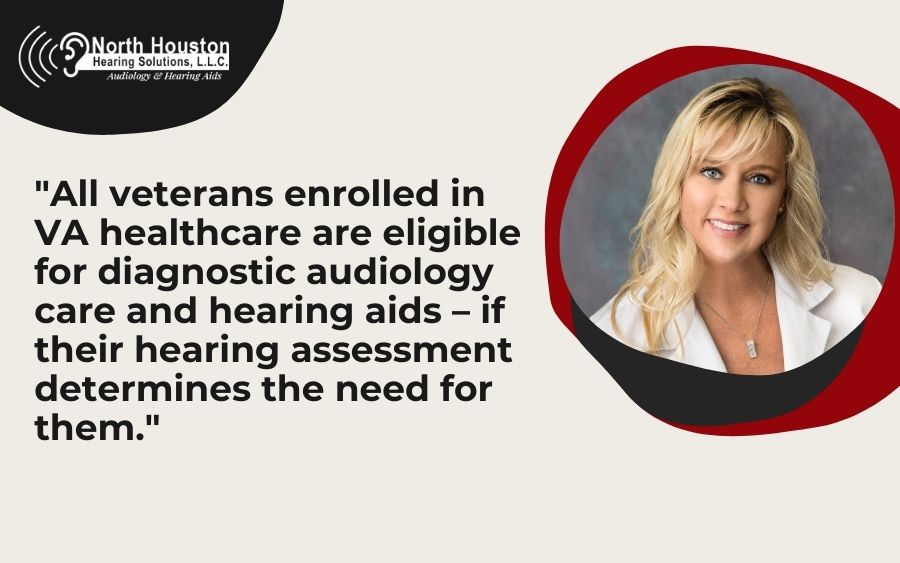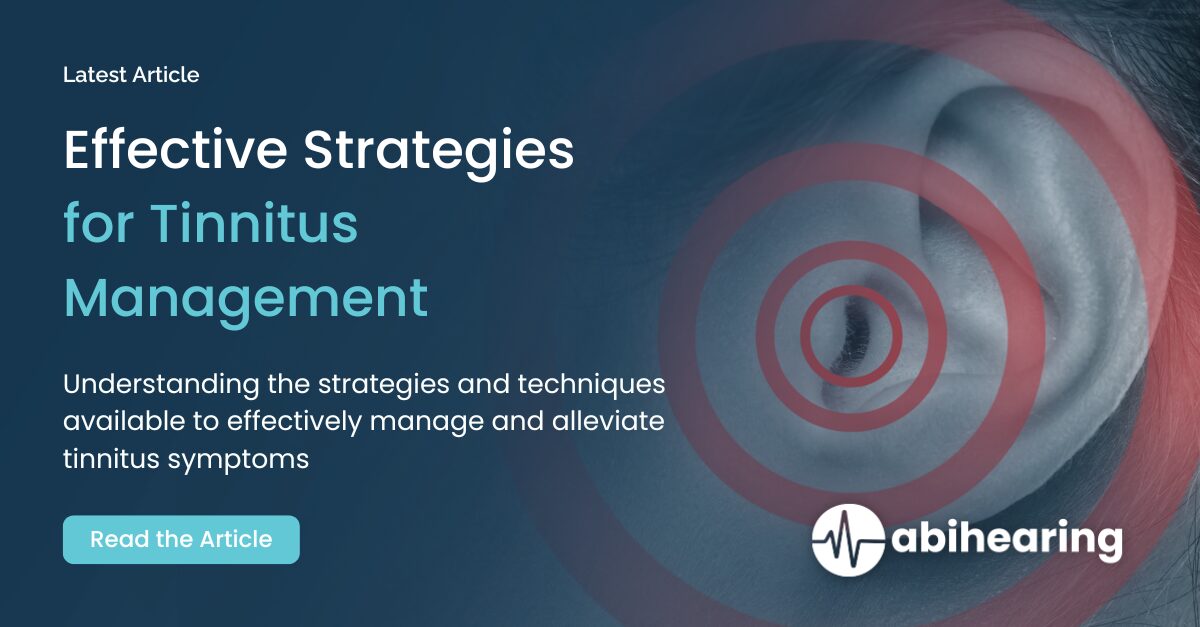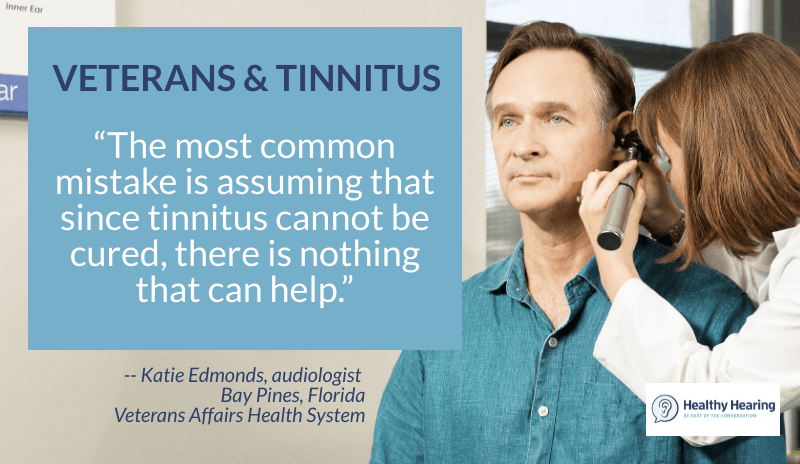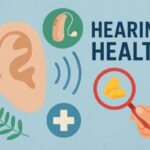Key Takeaways
- Nearly 3 million veterans suffer from tinnitus, making it the most common service-related disability among military personnel.
- Modern hearing aids with tinnitus features combine sound amplification with specialized masking technology to provide dual relief.
- The VA offers comprehensive hearing healthcare including premium hearing aids with tinnitus relief features at no cost to eligible veterans.
- Tinnitus-specific hearing aids can significantly reduce stress, improve sleep quality, and enhance overall quality of life for veterans.
- Starkey’s advanced hearing solutions provide cutting-edge technology specifically designed to address the unique hearing challenges veterans face.
Tinnitus – that persistent ringing, buzzing or hissing sound that has no external source – affects millions of Americans, but veterans bear a disproportionate burden of this invisible condition. The constant noise isn’t just annoying; it can be debilitating, affecting everything from concentration to sleep quality. Fortunately, modern hearing technology offers significant relief through specialized devices designed to address both hearing loss and tinnitus simultaneously.
For veterans struggling with tinnitus and hearing issues, Starkey hearing solutions provide cutting-edge technology specifically engineered to address these unique challenges. Their devices incorporate tinnitus masking features alongside premium hearing aid functionality, offering comprehensive support for those who’ve sacrificed much in service to our country. With approximately 15 percent of active-duty service members experiencing some degree of hearing loss, access to effective treatment options isn’t just a convenience—it’s essential for maintaining quality of life.
The impact of military service on hearing health can’t be overstated. Exposure to gunfire, explosions, aircraft engines, and other intense noise sources creates a perfect storm for developing both hearing loss and tinnitus. While traditional approaches often treated these conditions separately, today’s integrated solutions offer more comprehensive relief than ever before.
Veterans and Tinnitus: A Common Battle After Service
“Veterans commonly suffer from tinnitus” from www.starkey.com and used with no modifications.
The statistics tell a sobering story about veterans’ hearing health. According to the Department of Veterans Affairs, over 2.7 million veterans currently receive disability benefits for hearing loss or tinnitus. This makes tinnitus the single most common service-connected disability among veterans, affecting nearly twice as many former service members as post-traumatic stress disorder. The persistent, phantom sounds can range from mild annoyance to severe disruption of daily life.
Veterans face a 30% higher likelihood of developing hearing loss compared to their civilian counterparts. This stark difference stems directly from military service conditions where exposure to damaging noise levels occurs regularly. Even with hearing protection, the cumulative effect of repeated noise exposure creates lasting damage to the auditory system that often manifests as both hearing loss and tinnitus.
Why Veterans Experience Higher Rates of Tinnitus
Military environments present unique auditory challenges unlike most civilian workplaces. A single explosion can produce sound levels exceeding 140 decibels—far beyond the 85-decibel threshold where hearing damage begins. Combat veterans often experience these extreme sound exposures repeatedly throughout their service. Training environments aren’t much quieter, with weapons fire, vehicles, aircraft, and machinery creating a constant barrage of potentially damaging noise.
Beyond acute noise trauma, the cumulative effect of constant background noise takes a toll on auditory health. Ship engine rooms, flight decks, and transport vehicles create persistent noise exposure that compounds over time. This chronic exposure often results in subtle damage to the delicate hair cells in the inner ear, which can manifest as tinnitus even before measurable hearing loss occurs.
The relationship between blast exposure and tinnitus deserves special mention. Research has established strong links between traumatic brain injury (TBI) and tinnitus onset, with many veterans reporting tinnitus beginning immediately after blast exposure. These combat-related injuries create a complex interplay between auditory and neurological systems that can make tinnitus particularly resistant to standard treatments.
How Tinnitus Impacts Daily Life for Veterans
The effects of tinnitus extend far beyond the auditory system. Many veterans report significant disruption to their daily functioning and quality of life. Sleep disturbances rank among the most common complaints, with the phantom sounds becoming more noticeable in quiet environments. This creates a vicious cycle where sleep deprivation exacerbates stress, which in turn intensifies tinnitus perception.
Modern Hearing Aids: More Than Just Amplification
“Latest Trends in Hearing Aids Design …” from electronichealthreporter.com and used with no modifications.
Today’s hearing aids have evolved far beyond simple sound amplifiers. Modern devices integrate sophisticated digital technology capable of addressing multiple auditory issues simultaneously. For veterans with both hearing loss and tinnitus, these advanced devices offer dual benefits through a single solution. The integration of tinnitus management features represents one of the most significant advancements in hearing aid technology in recent years.
Premium hearing aids now incorporate dedicated tinnitus relief programs alongside their traditional amplification functions. These specialized features can be activated as needed, allowing veterans to adapt their devices to changing symptoms throughout the day. Many veterans report that having control over their tinnitus management provides psychological benefits beyond the direct sound relief, reducing anxiety associated with unpredictable symptom fluctuations.
Tinnitus Masking Technology Explained
At its core, tinnitus masking technology works by introducing external sounds designed to reduce awareness of the internal tinnitus noise. Unlike earlier generation maskers that simply produced white noise, modern hearing aids offer customizable sound therapy options tailored to each veteran’s specific tinnitus profile. These masking sounds are carefully calibrated to provide maximum relief while remaining comfortable for all-day wear. For more information, check out how Resound develops new app to relieve tinnitus symptoms.
Advanced tinnitus features work on the principle of sound enrichment – adding pleasant background sounds that reduce the contrast between silence and the tinnitus sound. Many devices offer multiple sound options including white noise, pink noise, nature sounds, and even customizable soundscapes. The goal isn’t to completely drown out the tinnitus but rather to make it less noticeable and intrusive in the veteran’s awareness.
Sound Therapy Features in Today’s Devices
Beyond basic masking, today’s hearing aids incorporate evidence-based sound therapy protocols specifically designed for tinnitus habituation. These therapies aim to retrain the brain to classify tinnitus as an unimportant background sound, reducing both awareness and emotional reaction to the phantom noise. Veterans can work with their audiologists to select sound therapy profiles that match their specific tinnitus characteristics and preferences.
Many premium devices now feature ocean wave simulators, fractal tones, and other soothing sounds designed specifically for tinnitus relief. These options extend beyond simple masking to provide a more therapeutic approach to tinnitus management. For veterans whose tinnitus varies throughout the day, having multiple program options available at the touch of a button provides adaptability that wasn’t possible with earlier technology.
Bluetooth and App Integration for Personalized Relief
The integration of Bluetooth connectivity has revolutionized how veterans can manage their tinnitus. Modern hearing aids connect wirelessly to smartphones, allowing users to stream customized sound therapy tracks, calming music, or audiobooks directly to their devices. This wireless capability transforms hearing aids into comprehensive sound therapy delivery systems that can be adjusted throughout the day as tinnitus symptoms fluctuate.
Companion smartphone apps offer unprecedented personalization options for tinnitus management. Veterans can fine-tune their sound therapy settings, create custom soundscapes, or even participate in guided relaxation exercises specifically designed for tinnitus relief. These apps often include tracking features that help veterans identify patterns in their symptoms, providing valuable information for ongoing tinnitus management strategies.
5 Ways Tinnitus-Specific Hearing Aids Help Veterans
“Best Hearing Aids for Tinnitus (2024 …” from www.youtube.com and used with no modifications.
The integration of hearing amplification with tinnitus relief features creates a powerful combination for veterans struggling with both conditions. These specialized devices address multiple aspects of auditory health simultaneously, providing comprehensive support for the complex hearing challenges many veterans face. The benefits extend far beyond improved hearing into numerous aspects of daily life and overall well-being.
1. Customizable Sound Environments
Veterans with tinnitus-specific hearing aids can tailor their listening experience to different environments throughout the day. When entering noisy situations like restaurants or social gatherings, they can emphasize the amplification features to improve speech understanding. During quieter periods when tinnitus might be more noticeable, they can activate masking or sound therapy programs to provide relief. This adaptability represents a significant advantage over single-purpose devices.
Advanced models feature automatic environmental detection that seamlessly transitions between programs based on acoustic conditions. This hands-free functionality proves particularly valuable for veterans with dexterity issues or those who prefer not to make manual adjustments in public settings. The ability to move between different sound environments without drawing attention to hearing difficulties helps veterans maintain confidence in diverse social and professional situations.
2. Stress and Anxiety Reduction
The psychological impact of constant tinnitus cannot be overstated. Many veterans report significant anxiety related to their tinnitus, creating a cycle where stress makes tinnitus more noticeable, which in turn increases stress. Specialized hearing aids break this cycle by providing reliable relief options that veterans can control. This sense of agency over their symptoms often leads to measurable reductions in tinnitus-related stress and anxiety.
2. Stress and Anxiety Reduction
The psychological impact of constant tinnitus cannot be overstated. Many veterans report significant anxiety related to their tinnitus, creating a cycle where stress makes tinnitus more noticeable, which in turn increases stress. Specialized hearing aids break this cycle by providing reliable relief options that veterans can control. This sense of agency over their symptoms often leads to measurable reductions in tinnitus-related stress and anxiety.
Research has consistently shown that effective tinnitus management correlates with improved mental health outcomes for veterans. By reducing the constant auditory distraction, these devices help veterans remain present in daily activities rather than being pulled away by intrusive phantom sounds. Many users report feeling more relaxed and less irritable after beginning treatment with tinnitus-specific hearing aids, benefits that extend to family relationships and workplace interactions.
3. Improved Sleep Quality
Sleep disruption ranks among the most debilitating aspects of tinnitus for many veterans. The quiet environment of the bedroom often makes tinnitus seem louder, creating a barrier to falling and staying asleep. Hearing aids with tinnitus features provide soothing background sounds that make tinnitus less noticeable during crucial sleep hours, helping veterans achieve more restorative rest.
Modern devices can be programmed with night-specific settings that gradually decrease in volume throughout the night, helping veterans transition to sleep while maintaining a comfortable sound environment. For those who cannot comfortably wear hearing aids while sleeping, many manufacturers offer companion bedside devices that sync with hearing aid settings to provide consistent sound therapy throughout the night. This comprehensive approach to 24-hour tinnitus management addresses one of the most challenging aspects of living with persistent tinnitus.
4. Better Concentration and Focus
Tinnitus acts as a constant distraction that can significantly impair concentration and cognitive function. Many veterans report difficulty focusing on tasks at work, reading, or engaging in conversation when tinnitus is prominent. By reducing awareness of tinnitus sounds, specialized hearing aids help restore the ability to concentrate on important tasks and interactions. For more information on potential causes and relief, you can explore tinnitus from ear infection.
Veterans using tinnitus-specific hearing aids frequently report improved performance in work settings and educational environments. The cognitive burden of constantly trying to ignore internal noise is substantially reduced, freeing mental resources for more productive activities. This improved focus can have profound effects on career advancement, educational pursuits, and overall life satisfaction.
5. Enhanced Social Interaction
The combination of hearing loss and tinnitus creates significant barriers to social engagement. Many veterans withdraw from social activities due to communication difficulties and the discomfort of tinnitus in noisy environments. Integrated hearing solutions address both problems simultaneously, improving speech understanding while managing tinnitus awareness.
Veterans using these devices report greater willingness to participate in social gatherings, family activities, and community events. This increased social engagement has well-documented benefits for overall mental health and quality of life. By removing the obstacles that tinnitus creates for normal social interaction, these specialized devices help veterans maintain vital connections with family, friends, and community.
VA Benefits for Hearing Health
“How to get VA hearing aids” from www.healthyhearing.com and used with no modifications.
The Department of Veterans Affairs provides comprehensive hearing healthcare services to eligible veterans, including access to premium hearing aids with tinnitus management features. These benefits represent one of the most valuable healthcare services available to those who have served. For many veterans, access to these advanced devices would be financially out of reach without VA support, making these benefits critical to maintaining quality of life.
Eligibility Requirements for Free Hearing Aids
All veterans enrolled in VA healthcare are eligible for comprehensive hearing evaluations. Eligibility for hearing aids and tinnitus devices depends on several factors, including service connection status, degree of hearing loss, and overall disability rating. Veterans with any service-connected hearing loss or tinnitus automatically qualify for hearing aid benefits. Those without service-connected auditory conditions may still qualify based on their specific situation and healthcare needs.
Veterans receiving VA pension benefits, former prisoners of war, Purple Heart recipients, and those with certain levels of combined disability ratings also qualify regardless of whether their hearing loss is service-connected. The VA uses a priority group system to determine eligibility, with service-connected disabilities receiving highest priority. Veterans unsure about their eligibility should contact their local VA audiology department or patient advocate for personalized guidance.
The VA Evaluation Process
The journey to receiving tinnitus-specific hearing aids through the VA begins with a comprehensive audiological evaluation. This assessment includes pure-tone testing, speech recognition testing, and specialized tinnitus evaluations to determine the specific characteristics of each veteran’s condition. Based on these results, audiologists develop personalized treatment recommendations that may include hearing aids with integrated tinnitus features.
Veterans approved for hearing aids will receive detailed fitting and orientation sessions where audiologists program devices to address both hearing amplification needs and tinnitus management. These sessions typically include instruction on device operation, cleaning and maintenance, and strategies for maximizing benefit from tinnitus features. Follow-up appointments ensure devices continue to meet veterans’ needs, with adjustments made as necessary to optimize both hearing and tinnitus relief.
Telehealth Options for Remote Veterans
Recognizing that many veterans live far from VA facilities, the department has expanded telehealth options for hearing healthcare. Remote programming capabilities allow audiologists to make adjustments to hearing aid settings without requiring in-person visits, a particular benefit for veterans with mobility limitations or those living in rural areas. These telehealth services ensure all veterans have access to ongoing support for their tinnitus management devices.
The VA’s mobile apps and virtual care platforms provide additional support between appointments, allowing veterans to communicate with their healthcare teams about tinnitus management strategies and hearing aid performance. These digital resources have become increasingly important in ensuring continuity of care regardless of a veteran’s geographic location or transportation limitations.
Getting Started with VA Hearing Healthcare
“Hearing Loss: Veteran Awarded $8.2M for …” from northhoustonhearing.com and used with no modifications.
Navigating the VA healthcare system can initially seem daunting, but understanding the process for accessing hearing healthcare services helps veterans take advantage of these valuable benefits. The system is designed to provide comprehensive support, from initial assessment through long-term device management and follow-up care. Veterans new to the system will find numerous resources available to guide them through each step of the process, including information on tinnitus prevention and treatment.
Step-by-Step Guide to Accessing VA Audiology Services
Veterans not currently enrolled in VA healthcare must first establish eligibility through the VA enrollment process, which can be completed online, by phone, or in person at local VA facilities. Once enrolled, veterans can request a referral to audiology services through their primary care provider or, in many cases, self-refer directly to the audiology clinic. Most VA medical centers have dedicated audiology departments equipped to handle comprehensive hearing and tinnitus evaluations.
After scheduling an initial appointment, veterans should gather relevant medical records, particularly documentation of military noise exposure or previous hearing evaluations. Coming prepared with a list of specific tinnitus symptoms, including when they’re most bothersome and what seems to help or worsen them, will assist audiologists in developing targeted treatment plans. Veterans should also be ready to discuss how their tinnitus and hearing difficulties affect daily life, as this information guides treatment priorities.
What to Expect During Your First Appointment
The initial VA audiology appointment typically includes a comprehensive case history discussion, hearing examination, and specialized tinnitus assessment. Audiologists will document the specific characteristics of each veteran’s tinnitus, including pitch, volume, and pattern, which helps determine the most appropriate sound therapy approach. This thorough evaluation ensures treatment recommendations address each veteran’s unique hearing profile.
If hearing aids with tinnitus features are recommended, the audiologist will discuss available options and technology levels. Veterans should use this opportunity to ask questions about different features, expected benefits, and how to maximize relief from their devices. Depending on the facility’s procedures, fitting appointments may be scheduled the same day or as a follow-up visit, typically within a few weeks of the initial evaluation.
Beyond the VA: Additional Resources for Veterans
“Tinnitus Management” from www.abihearing.com.au and used with no modifications.
While the VA provides excellent hearing healthcare services, veterans can benefit from supplementary resources that enhance their tinnitus management strategy. These additional support systems offer complementary approaches that work alongside VA-provided hearing aids to create a comprehensive treatment plan. Many veterans find that combining multiple resources provides the most effective relief from persistent tinnitus symptoms.
Non-Profit Organizations Offering Hearing Aid Assistance
Several non-profit organizations specialize in supporting veterans with hearing challenges. The Hearing Loss Association of America offers education, advocacy, and support groups specifically addressing the needs of those with auditory conditions. Veterans of Foreign Wars (VFW) and American Legion posts often provide financial assistance for hearing-related expenses not covered by VA benefits. These organizations can help bridge gaps in care and provide community support that complements medical interventions.
Organizations like the Wounded Warrior Project and Heroes With Hearing Loss provide specialized programs focused on the unique needs of combat veterans with auditory injuries. These programs often include peer mentoring, where veterans can connect with others who understand the specific challenges of military-related hearing loss and tinnitus. The shared experiences and practical advice from these peer networks prove invaluable for many veterans navigating life with tinnitus.
Apps and Supplemental Tools for Tinnitus Management
Beyond hearing aid manufacturer apps, numerous standalone applications provide additional tinnitus relief options. Apps like ReSound Relief, Beltone Tinnitus Calmer, and Starkey Relax app offer customizable soundscapes, relaxation exercises, and educational resources specifically designed for tinnitus management. These apps can be used in conjunction with hearing aid features or during times when devices are not being worn, providing 24-hour tinnitus relief options.
Tabletop sound machines, pillow speakers, and wearable sound generators offer additional options for tinnitus management in specific situations. These supplementary devices can be particularly helpful during sleep, when most hearing aid users remove their devices. Many veterans find that creating a comprehensive tinnitus management strategy incorporating multiple tools provides the most consistent relief throughout all daily activities. For those interested in exploring natural treatment for tinnitus, there are effective approaches backed by research that can be integrated into their management plans.
Life-Changing Relief: What Veterans Can Expect
“Veterans and tinnitus” from www.healthyhearing.com and used with no modifications.
The journey to effective tinnitus management often involves adjustment periods and ongoing refinement of strategies. Most veterans notice initial benefits from tinnitus-specific hearing aids within the first few weeks of use, with continued improvement as they adapt to the devices and work with their audiologists to optimize settings. While complete elimination of tinnitus perception is rare, significant reduction in tinnitus awareness and distress is achievable for most veterans. The combination of improved hearing and reduced tinnitus awareness creates a compound benefit that substantially enhances quality of life.
Frequently Asked Questions
Veterans considering tinnitus-specific hearing aids often share common questions about the process, effectiveness, and practical aspects of these devices. Understanding these key points helps veterans set realistic expectations and take full advantage of available benefits. The following questions represent those most frequently asked by veterans exploring their options for tinnitus relief.
How long does the VA approval process for hearing aids typically take?
The timeline varies by facility, but most veterans complete the process from initial evaluation to receiving devices within 30-90 days. Factors affecting this timeline include local VA facility workload, availability of audiology appointments, and whether additional medical consultations are required. Veterans with service-connected hearing conditions or severe impairment typically receive expedited processing. Many VA facilities now offer same-day fitting for certain hearing aid models, potentially reducing wait times significantly.
Veterans can help streamline the process by coming prepared to appointments with relevant medical records and detailed descriptions of their symptoms. Those experiencing significant tinnitus distress should clearly communicate the impact on their daily functioning, as this information may influence priority scheduling and treatment recommendations.
Can I choose which brand or model of hearing aid I receive through the VA?
The VA maintains contracts with major hearing aid manufacturers including Starkey, ReSound, Phonak, Signia, and Oticon, giving veterans access to premium technology. While veterans cannot select specific brands or models, VA audiologists work closely with each veteran to match appropriate technology to their specific hearing profile and tinnitus characteristics. The VA’s selection includes devices with advanced tinnitus management features from all major manufacturers, ensuring veterans receive appropriate options regardless of the specific brand provided.
Veterans with unique needs or preferences should discuss these with their audiologist during the evaluation process. In certain cases where specific features are medically necessary, audiologists can request specific technology through special ordering processes. The focus remains on matching appropriate technology to each veteran’s unique hearing and tinnitus profile rather than brand preferences.
Will tinnitus-specific hearing aids completely eliminate the ringing in my ears?
Most veterans experience significant reduction in tinnitus awareness and distress rather than complete elimination. Success rates vary based on individual factors including tinnitus severity, duration, underlying causes, and consistent device use. Research indicates approximately 60-70% of users report meaningful improvement in tinnitus perception and related quality of life when using properly fitted devices with tinnitus features. The goal of treatment is to reduce tinnitus to a level where it no longer significantly impacts daily functioning and well-being. For more information on causes and relief, check out this article on how to stop buzzing in ears.
Do I need to have hearing loss to qualify for tinnitus-relief hearing aids?
Veterans can qualify for tinnitus-specific devices even with normal or near-normal hearing. The VA recognizes tinnitus as a standalone condition deserving treatment, particularly when it significantly impacts quality of life. For veterans with normal hearing but debilitating tinnitus, options may include tinnitus maskers, combination devices, or specialized hearing aids programmed primarily for sound therapy rather than amplification. The qualification process focuses on the impact of symptoms rather than requiring specific levels of hearing loss. For more information on effective approaches, explore natural treatments for tinnitus.
How often will the VA replace or upgrade my hearing aids?
The VA typically provides replacement devices every 3-5 years, depending on the condition of current aids and whether they continue to meet the veteran’s needs. Veterans experiencing significant changes in hearing or tinnitus symptoms may qualify for replacements sooner. Additionally, the VA provides comprehensive repair services, battery supplies, and accessories throughout the life of the devices, ensuring veterans maintain consistent access to functioning technology.
Veterans seeking to maximize the lifespan of their devices should follow recommended cleaning protocols, attend scheduled maintenance appointments, and report performance issues promptly. Proper care not only extends device life but ensures optimal performance of tinnitus management features between replacement cycles.
For veterans struggling with the persistent challenges of tinnitus, today’s advanced hearing aid technology offers unprecedented relief possibilities. By combining sophisticated sound therapy with premium amplification features, these devices address the complex interplay between hearing loss and tinnitus that affects so many who’ve served. With proper guidance from VA audiologists and consistent use of recommended technology, veterans can reclaim the quiet moments, comfortable sleep, and clear communication that tinnitus often disrupts.
Starkey remains committed to developing innovative hearing solutions that address the unique challenges faced by America’s veterans, offering technology that honors their service by enhancing their quality of life. For those interested in natural approaches, there are effective natural treatments for tinnitus that veterans might find beneficial.
